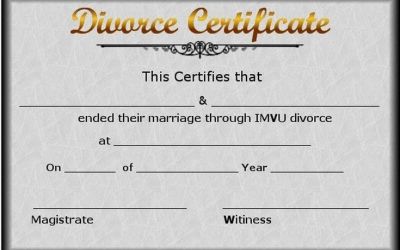Court Marriage for Muslims: Everything You Need to Know About Interfaith Marriages
Table of Contents ▼
Can Muslims marry non-Muslims in civil court? Here’s how court marriage for Muslims provides an option for interfaith unions.
As interfaith couples face increasing challenges in getting married according to both their religious and legal requirements, court marriage for Muslims offers a viable solution. Many Muslim and non-Muslim couples ask if they can marry through civil court, bypassing traditional religious ceremonies. In many jurisdictions, the answer is yes. This blog will walk you through the essential considerations, legal frameworks, and religious aspects of court marriage for Muslims, especially when one partner follows Islam and the other follows a different faith.
Understanding Court Marriage for Muslims
A court marriage for Muslims is a legally binding union that is recognized by the state but may not necessarily align with religious institutions. This option becomes especially valuable for Muslim and non-Muslim couples, as religious marriages may present obstacles for those from different faith backgrounds.
Religious marriages, such as the nikah, follow Islamic principles, while court marriage for Muslims is governed by the legal frameworks of the country. This distinction allows for legal recognition of the marriage without the complications posed by differing religious doctrines. For interfaith couples, it’s the most practical way to marry legally while still respecting their individual faiths.
Legal Frameworks Across Different Jurisdictions
The rules surrounding court marriage for Muslims vary significantly depending on where the marriage takes place. In some countries, marriage laws have evolved to accommodate interfaith unions, while others may impose strict limitations based on religious grounds.
For example, in the UAE, reforms have recently been made to allow court marriage for Muslims and non-Muslims to be conducted under civil law, moving away from Sharia law, which historically had significant restrictions on interfaith marriages. This shift has opened up more opportunities for Muslim and non-Muslim couples to marry legally, though they must meet specific residency and documentation requirements.
Other countries may have different rules for court marriage for Muslims that require adherence to local laws and documentation processes. It’s essential for couples to fully understand the legal framework in the jurisdiction where they plan to marry.
Religious Considerations vs. Legal Realities
While court marriage for Muslims is a legal option, religious teachings in Islam offer certain guidelines for interfaith marriages. These guidelines vary by interpretation but generally include the following:
- Muslim men are permitted to marry women from Abrahamic faiths (Jews and Christians), referred to as “People of the Book.”
- Muslim women, on the other hand, are typically required to marry Muslim men according to Islamic law.
These religious teachings can create barriers for Muslim/non-Muslim couples who wish to marry, particularly when the woman is Muslim. However, court marriage for Muslims offers a way around these religious limitations by providing a legal route for interfaith unions. Civil marriage respects the legal rights of the couple without enforcing religious requirements.
Practical Considerations for Muslim + Non-Muslim Civil Marriages
Couples considering court marriage for Muslims should take into account the following practical aspects:
Documentation Requirements
For a court marriage for Muslims, specific documentation will be required to ensure the marriage is legally valid. Common documents include:
- Valid passports and national ID cards
- Birth certificates (which may need to be apostilled or legalized)
- Certificates of no impediment (proof that both parties are legally free to marry)
- Divorce decrees if applicable
- Translated documents if required
It’s crucial to gather all necessary documentation well in advance to avoid delays. Consulting with a marriage expert familiar with the jurisdiction’s requirements can help ensure everything is in order.
Legal Implications
A court marriage for Muslims carries various legal implications that the couple must understand. These include:
- Property ownership and inheritance rights
- Child custody and parental rights
- Divorce procedures
- Legal recognition of the marriage in the couple’s home country
- Tax implications
Couples are encouraged to consult legal professionals in both the jurisdiction where they plan to marry and their home country to fully understand the legal rights and responsibilities involved.
Planning Timeline for Civil Muslim Marriage
For couples planning to marry through court marriage for Muslims, starting early is essential. A general timeline for preparation is as follows:
- 3-6 Months Before: Begin researching marriage options and gather essential documentation.
- 2-3 Months Before: Choose the jurisdiction for the marriage and start the document authentication process.
- 1-2 Months Before: Submit the application and begin making travel arrangements.
- 2-4 Weeks Before: Double-check all the requirements with the relevant authorities.
- Arrival: Arrive several days ahead of the ceremony to resolve any unexpected issues.
The sooner you begin, the less stress you’ll face as your wedding day approaches.
FAQs
Will our court marriage for Muslims be recognized when we return home?
Recognition of a court marriage for Muslims performed abroad varies by country. While many countries recognize legally performed marriages, some may require additional registration or may not recognize marriages that conflict with local laws. Be sure to check with your home country’s legal authorities to confirm the status of your marriage.
Can we incorporate religious elements into our civil ceremony?
Yes! Many civil ceremonies allow couples to include religious vows, prayers, and symbolic acts. While the legal portion of the ceremony must meet the requirements of the jurisdiction, you can often incorporate meaningful elements from your faith after the legal ceremony.
What if our families disapprove?
Family disapproval is a common challenge for interfaith couples, but it’s important to find a balance between family expectations and the couple’s desires. Working with a consultant can help you navigate these difficult situations and find a respectful solution that works for everyone.
Conclusion
Court marriage for Muslims provides an excellent solution for Muslim and non-Muslim couples who wish to marry legally. With increasing access to civil marriage options in various countries, interfaith couples now have more opportunities to formalize their union and enjoy the legal benefits that come with marriage.
While navigating the complexities of religious guidelines, legal frameworks, and family expectations can be challenging, court marriage for Muslims ensures that couples are legally protected and able to marry on their terms. With proper planning and guidance, you can focus on your future together without being overwhelmed by bureaucratic hurdles.
If you’re considering a court marriage for Muslims, contact us today for expert guidance on the entire process.


